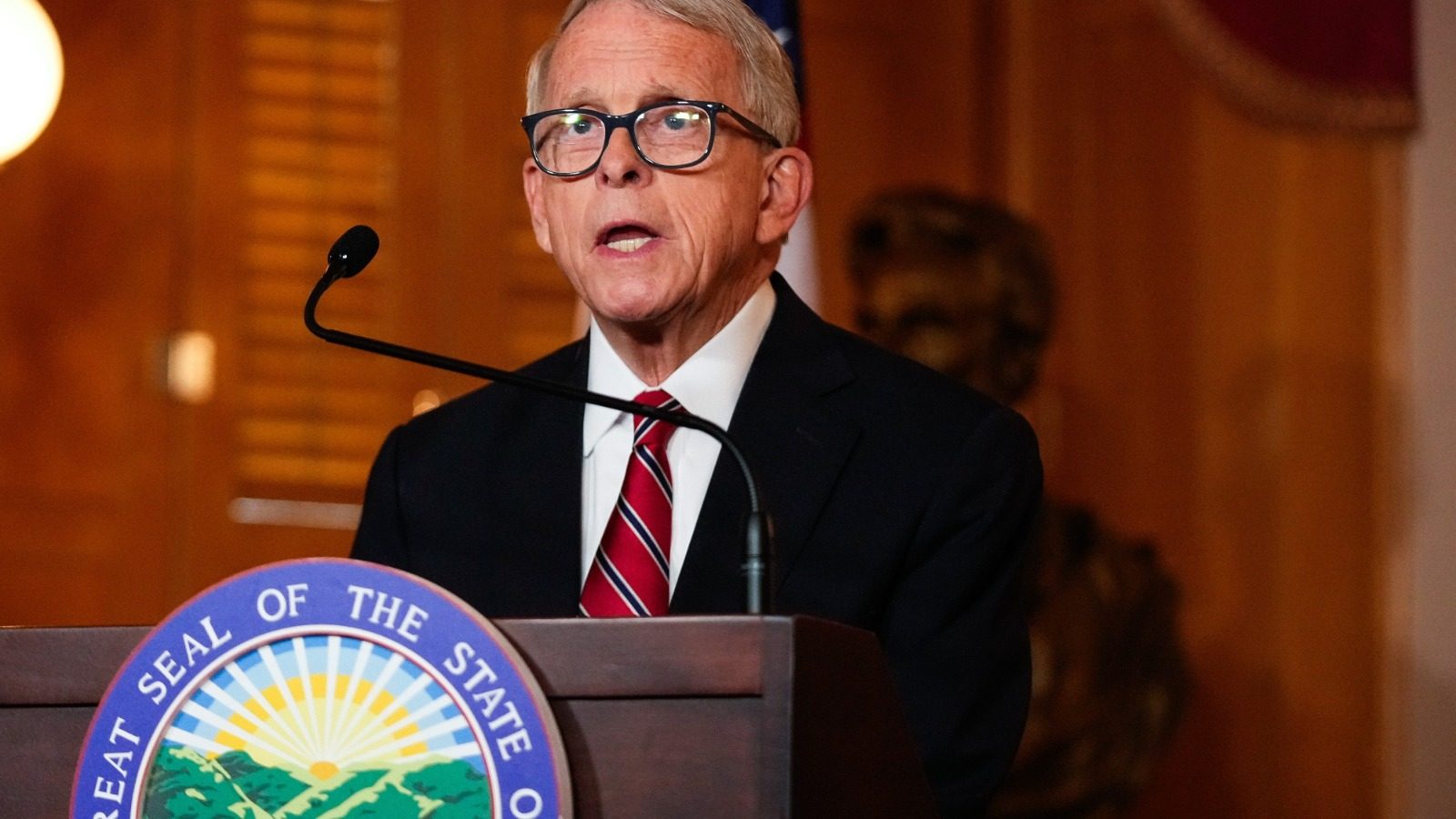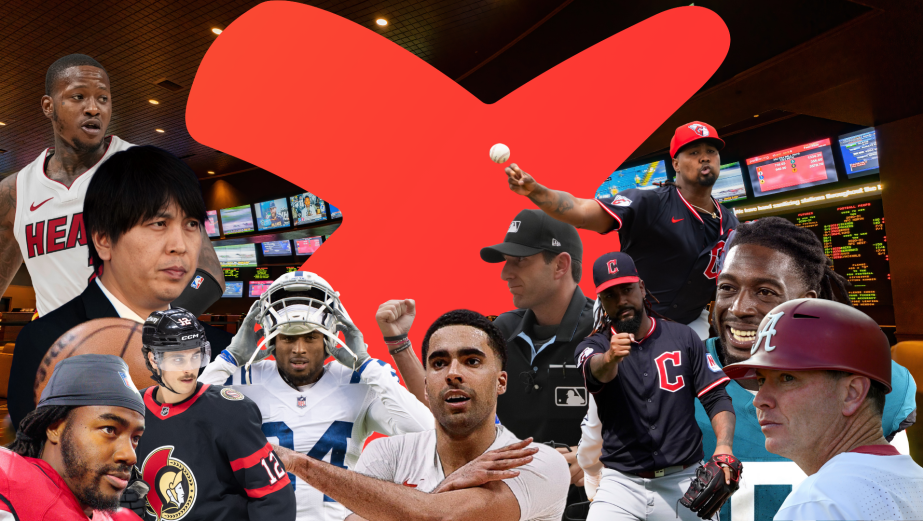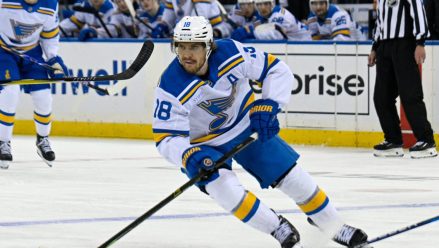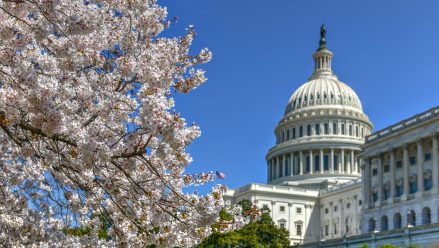Just when it seemed like professional athletes had gotten the message that breaking league gambling rules, including match fixing, could cost them a career (or worse), July happened. The month tipped off with NBA free agent Malik Beasley under investigation for “irregularities” around prop bets and closed out with a second Cleveland Guardians player being placed on leave because he’s being investigated for gambling.
Ohio Gov. Mike DeWine seized the opportunity by calling on July 31 for a ban on professional player prop bets. That ask, however, could be contrary to DeWine’s end game of a safe, regulated market.
On July 4, Guardians pitcher Luis Ortiz was placed on “non-disciplinary” leave as Major League Baseball announced an investigation related to microbetting, according to The Athletic. The leave was supposed to last two weeks but was extended through Aug. 31. Then July 28, teammate Emmanuel Clase was also placed on non-disciplinary leave when MLB revealed that he, too, is part of a gambling investigation.
“The evidence that prop betting is harming athletics in Ohio is reaching critical mass,” DeWine said in a statement. “First, there were threats on Ohio athletes, and now two high-profile Ohio professional athletes have been suspended by Major League Baseball as part of a sports betting investigation. The harm to athletes and the integrity of the game is clear, and the benefits are not worth the harm. The prop betting experiment in this country has failed badly. I call on the Casino Control Commission to correct this problem and remove all prop bets from the Ohio marketplace.”
But those in the sports betting industry say DeWine’s call to action isn’t a solution. Rather, it is a knee-jerk reaction that will ultimately harm consumers and the state and overlooks the idea that illegal betting or game fixing by athletes is only revealed because the industry is watching.
U.S. bettors still playing on black market
“An outright ban on prop bets may sound like a quick fix, but it misses the point,” John Pappas, state advocacy director for the iDevelopment Economic Association (iDEA), told InGame. “The only reason this potential misconduct came to light is because the regulated market caught it and flagged it. That’s exactly how legal sports betting is supposed to work. In the illegal market, this kind of suspicious activity would never raise a red flag.”
It’s not the first time that the system has worked. Jontay Porter pled guilty to conspiracy to commit wire fraud and is awaiting sentencing after DraftKings flagged suspicious bets. Porter was banned from the NBA for life in April 2024.
Among other “catches” by the industry: Integrity monitor IC360 (formerly US Integrity) flagged suspicious activity around betting on the Temple men’s basketball team in March 2024, and MGM noted unusual activity at one of its Ohio casinos around betting on an LSU baseball game in the spring of 2023.
“Recent instances of suspicious activity that led to player suspensions were flagged by legal, regulated operators working hand-in-hand with professional leagues and integrity monitors,” American Gaming Association SVP of Strategic Communications Joe Maloney told InGame. “This demonstrates that the regulated market works: It detects potential misconduct, it reports it, and it helps hold bad actors accountable.
“Prohibition doesn’t stop betting — it stops oversight. Illegal operators won’t honor bans, won’t partner with leagues, and won’t protect players or fans. The most effective path forward is education and deterrence: making sure every athlete knows the rules, understands the risks, and recognizes that if they compromise the game’s integrity, the legal market will catch it.”
Said another industry source: “Legal operators who follow the rules, pay taxes, and uphold rigorous compliance standards should not be penalized while bad actors thrive in the unregulated market. Other states have recognized this reality and rejected similar proposals to ban prop bets. If protecting the integrity of sports and safeguarding consumers is the goal, then keeping prop bets legal is the only effective path forward.”
Barring a legislative fix, a ban on pro prop bets would have to come via the Ohio Casino Control Commission (OCCC). The agency told InGame in a written message that it “works closely with Governor DeWine’s Office and the General Assembly in serving the citizens of Ohio and protecting the integrity of gaming in the State. To that end, staff is gathering information for the Commission to consider. The Commission will announce its next steps in the upcoming days.”
Will pro teams back DeWine?
As part of his ask, DeWine plans to ask the commissioners and players unions of six major American sports leagues to support his call for a prohibition. In addition to MLB, he said he’ll contact the National Football League, the National Basketball Association, the Women’s National Basketball Association, the National Hockey League, and Major League Soccer. So far, no professional sports league has voiced support or interest in such a ban anywhere in the U.S.
In fact, a ban on pro player props would ultimately hurt the bottom line for many major professional leagues and teams — particularly those that hold wagering licenses and have market-share agreements with wagering operators. In Arizona, Illinois, Ohio, and Washington, D.C., regulators require wagering platforms to partner with land-based casinos or professional sports teams to offer sports betting. And in some cases, revenue-sharing agreements are in place.
When Missouri goes live in December, some operators there will also partner with professional sports teams. In addition, each of the four major professional American sports leagues has some sort of relationship with the sports betting industry. As a result, the leagues themselves could see deals become less lucrative.
According to InGame statistics, Illinois bettors laid down 164.4 million Tier 1 (game results) wagers on professional sports between June 2024-May 2025. During that same period, bettors laid down 188.5 million Tier 2 bets, which encompasses all in-game betting. In terms of dollars, handle for Tier 1 wagers was $4.6 billion and for Tier 2 was $8 billion. Illinois does not break down Tier 2 bets by wager, but Tier 2 bets include pro player and team prop bets.
When it comes to college sports — betting on college player props is not legal in Illinois — Tier 2 handle was bigger than Tier 1 for the same time period, $1.1 billion vs. $863 million. In its revenue reports, Ohio does not break down what kinds of bets operators receive, and operators themselves do not divulge that information.
Beyond the potential financial consequences of banning any kind of bets, industry leaders have repeatedly pointed to the idea that prohibiting a bet doesn’t mean it doesn’t get placed. In fact, black-market sportsbooks remain prevalent in the U.S., and bettors use them not only in states where wagering isn’t legal, but also where certain kinds of wagers aren’t legal.
According to AGA research in 2023, 77% of sports bets in the U.S. were placed with legal operators, compared to 44% in 2019. Two years prior, a 2021 United Nations “Bettor Safe” report concluded that the black market at that time accounted for $340 billion to $1.7 trillion in handle. That was compared to $40 billion being bet on the legal U.S. market. The numbers have likely shifted in the intervening years as more states have legalized digital wagering, but U.S. bettors remain active on the black market.
“The governor must know that the best defense against corruption is a transparent, state-regulated market overseen by his team,” Pappas said. “Not pushing players to unregulated operators with no accountability.”
Ohio comes down hard on harassers
Since betting went live, the OCCC has not only enforced its stringent wagering rules, it’s added some, including a 2024 ban on college prop bets backed by DeWine. That was in response to the NCAA lobbying across the country, arguing that prop bets can put college athletes, who may be sitting in class or eating lunch in the same dining hall as a losing bettor, in peril.
Ohio has also been in the news for harassment of athletes and coaches. In 2023, University of Dayton basketball coach Anthony Grant said in a post-game press conference that his players were the targets of harassment from bettors. And in 2024, Cleveland Cavaliers coach J.B. Bickerstaff revealed that he’d been harassed by fans who bet. The OCCC ultimately added a rule that allows it to ban bettors who harass athletes by adding them to the state’s involuntary exclusion list.
At the time, DeWine told ESPN’s Outside the Lines that “what really fueled the decision to do away with prop betting in intercollegiate athletics is to protect these young people. They were being harassed, they don’t deserve that. From the big picture, anyone who has a financial interest or any interest in professional sports should really be concerned about the product they put out.”
Both Grant and Bickerstaff and many other athletes and coaches have described digital threats to themselves and their families stemming from betting. And that’s on top of the standard jeering college and professional athletes endure in person.
While the state via the OCCC has a way to punish those who harass by banning them, the same is not true of eliminating a single kind of bet. Certainly, there are some who say that bettors won’t immediately turn to the black market for a bet they can’t make legally — but what if they do?
“Banning prop bets would not stop people from placing them,” the industry source said. “Fans would turn to illegal, offshore, and unregulated platforms that operate without oversight, without consumer protections. … That creates a dangerous blind spot for regulators and leagues, leaving them unable to detect threats to game integrity.”








